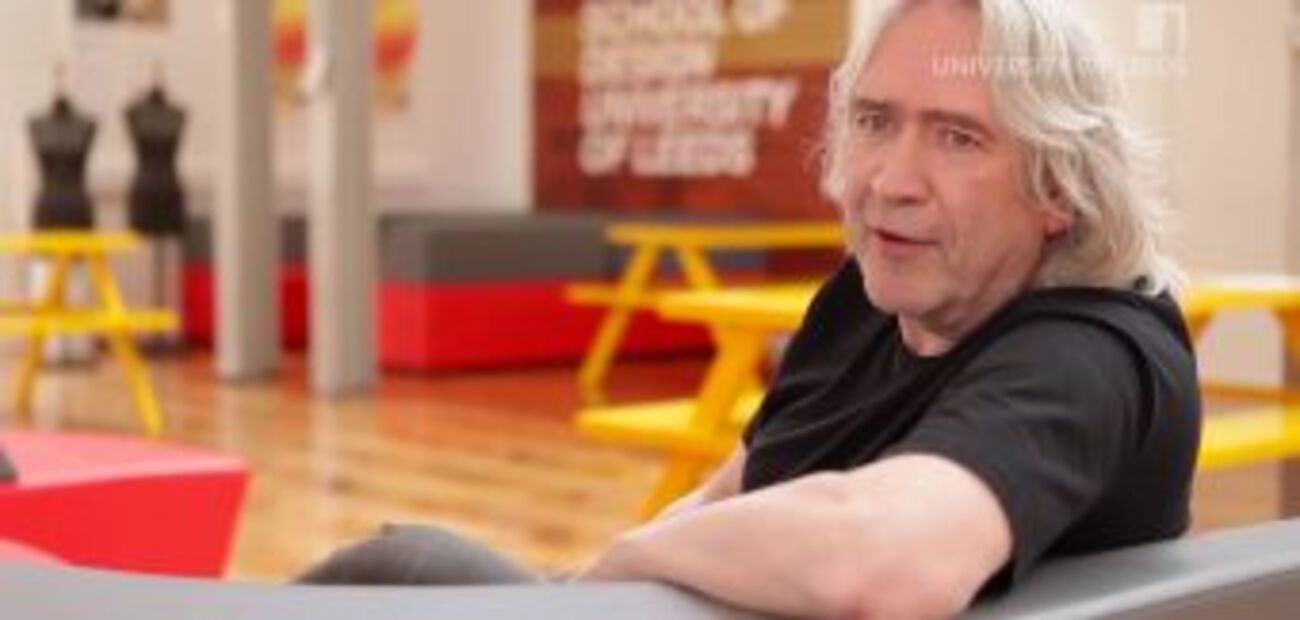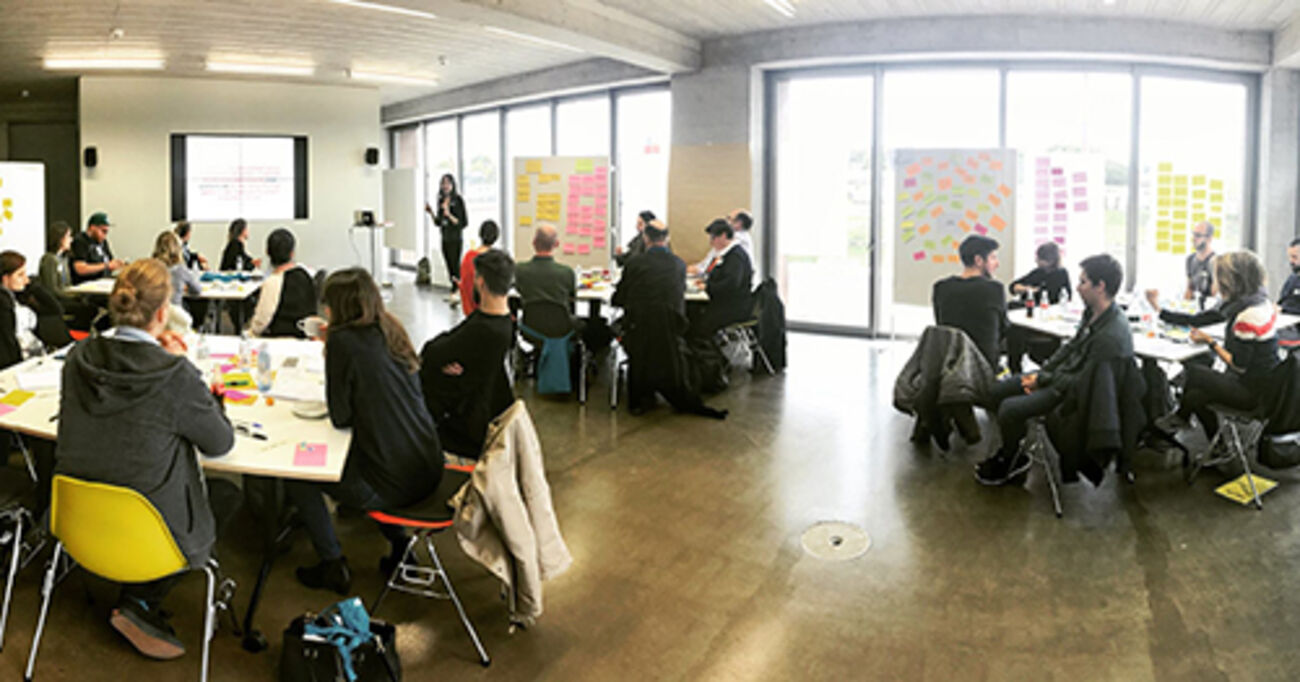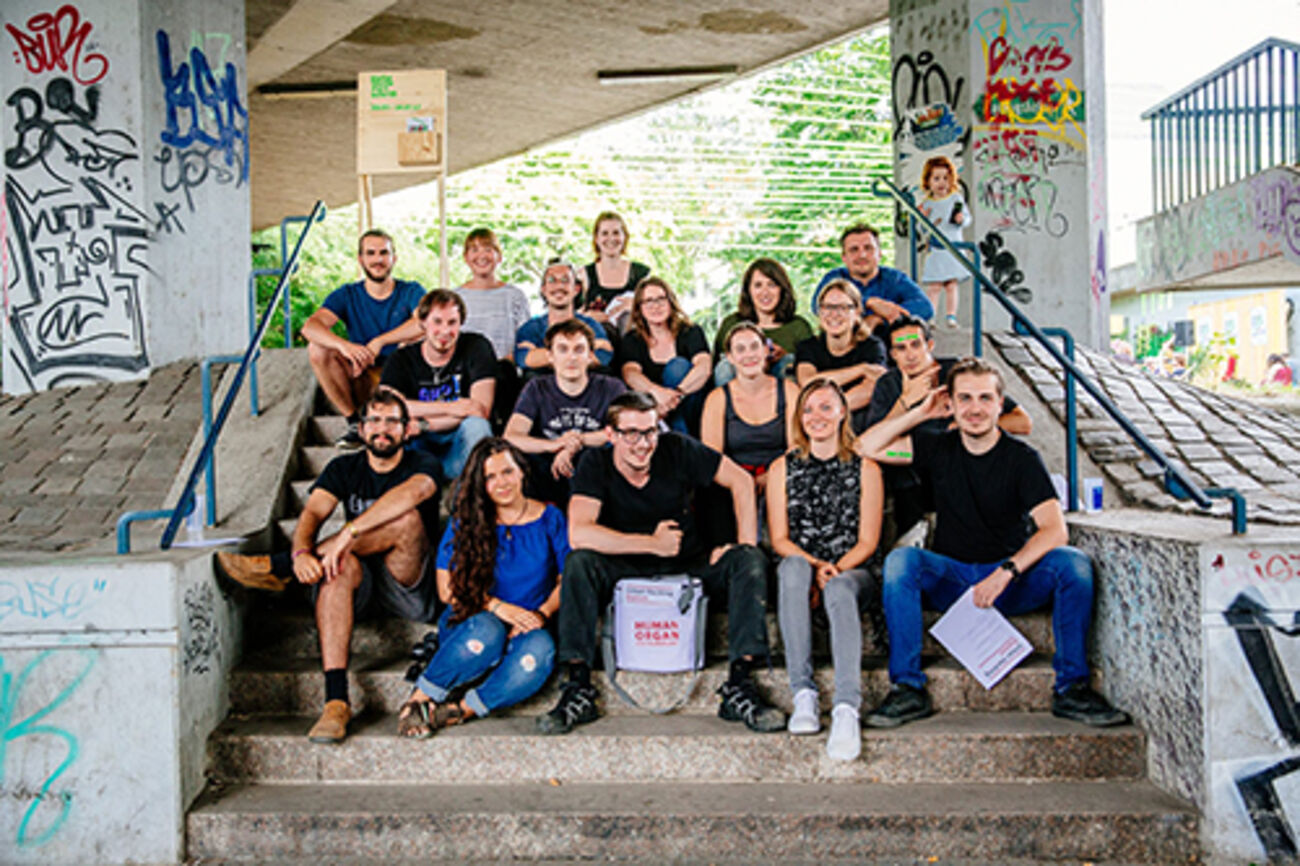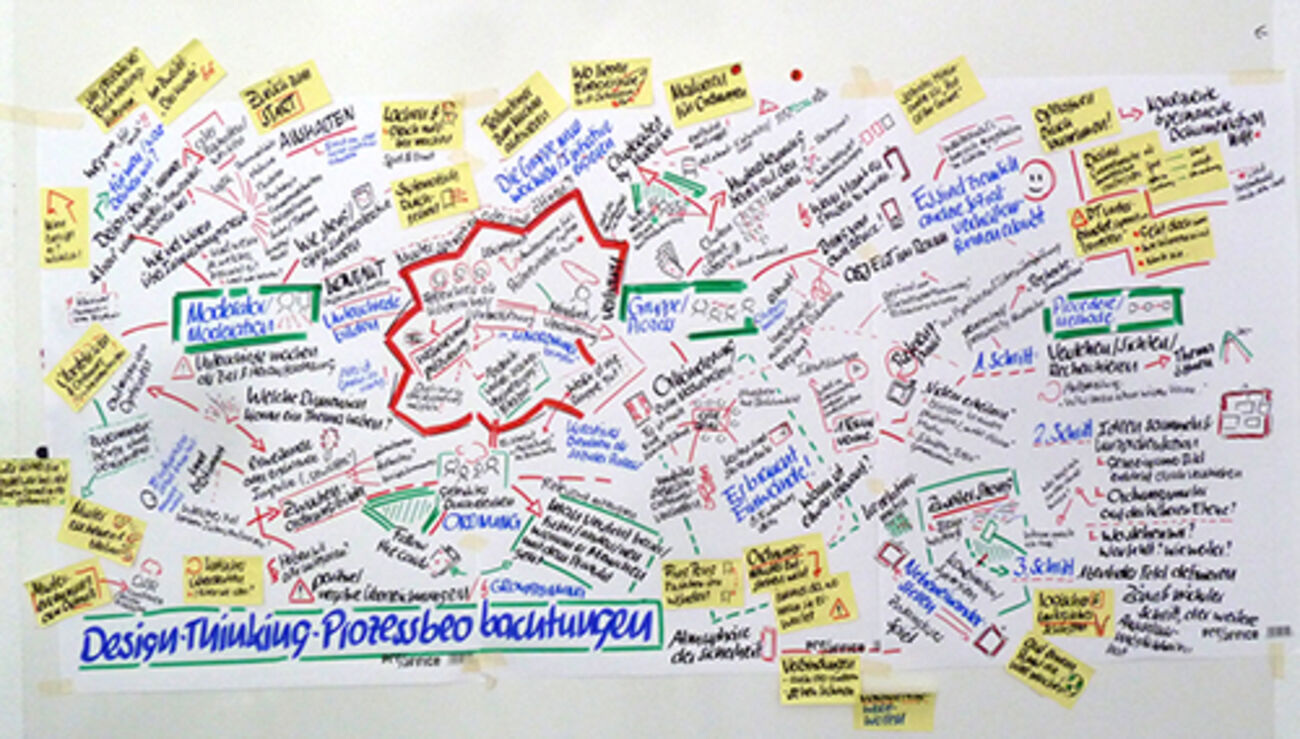Design Future Society: Interview with Mr Mike Sheedy
Design Future Society: Interview with Mr Mike Sheedy
November 1st, 2017
www.design.leeds.ac.uk/news/design-future-society-interview-with-mr-mike-sheedy/
Mike Sheedy is MA Design Future Society Programme Leader and Deputy Head of School of Design.
We caught up with Mr Sheedy to find out more about Design Future Society, an 18-month MA programme leading to a joint award with Mannheim University of Applied Sciences.
What is the philosophy of MA Design Future Society?
“The fundamental purpose for the programme is for students to engage in the future role of design and its potential impact on society.
Our aim is to employ design thinking in order to create special human experiences and improve the quality of people’s lives.”
Students working on the Urban Hacking brief in Mannheim 2017.
Could you tell us about the research that your students are doing?
“Student research is focused on understanding social, cultural and economic conditions that affect human behaviour.
In order to understand the effect of these factors, students are also engaged with research into digital interaction, philosophy and sociology, as well as qualitative research into the specific environments in which they are working and studying.”
What subjects have students previously studied? Do you need to have a design undergraduate degree?
“You don’t need to have a degree in a specialist art and design subject, although naturally many of our students do.
Teamwork and the dynamics of people working together, with different skills and knowledge, to address social need and future communication problems is central to our concept for the programme.”
Students attend a ‘Design Thinking’ masterclass
What live projects are this year’s student cohort working on?
“Our students are currently engaged in an international project located in India and a series of project briefs generated by community groups and organisations in Leeds.
These projects focus on real problems that we believe can be addressed by employing design thinking.
We’re working in partnership with Digital Agency mHabitat on local projects including an NHS initiative to improve health and well-being through the ‘Make Every Contact Count’ campaign and Big Issue North‘s campaign to promote selling of the Big Issue as an alternative to begging.
Students are also working on a project based in India set by social entrepreneur Murali Svirnas which focuses on finding solutions for issues surrounding sanitation, housing and elderly care.”
The second semester of MA Design Future Society takes place in Mannheim, Germany. Why, Mannheim?
“School of Design and Mannheim University of Applied Sciences share the belief that design has a greater role to play in our societies in addressing problems and improving human experiences.
In 2014 I was invited to speak at a symposium on social design that Mannheim University of Applied Sciences had organised – it was there that we first talked about a joint degree with an international focus.
We considered that it would be essential to include an exchange period to provide students with experience of working with in another culture to broaden understanding of social, economic and political issues.”
Design Thinking mind map
Could you tell us about the design community and cultural life in Mannheim?
“Mannheim is an industrial city, it is located in the Southwest of Germany in-between two major rivers, the Rhine and the Necker.
It has a long history of innovation and technological development including the invention of the bicycle and Mercedes Benz started there.
The Gesamtverband Kommunikationsagenturen (a German design industry association) described Fakultat für Gestaltung at Mannheim as “One of the best design schools in Germany with the highest employability of their students.”
Mannheim has a thriving student population and there are many cultural and social opportunities to enjoy as well as the beautiful surrounding countryside – where Reisling wine is produced.”
MA Design Future Society
What career paths might a student on this programme pursue?
“Our students will be able to take advantage of a growing number of opportunities both within and outside the current standard design agency model.
These include Design Thinking, Service Design and UX Design but also in research, strategy and planning.
There is a growing need for design thinking in the areas of Health, Social Work and Education and in the design and specification of products and processes in manufacturing sectors and pivotal input into service sectors.
Creative thinking has never been more in demand across all sectors and students from this programme will be well equipped to make effective contributions and meet the challenges that face our societies and economies.”
Find out more about MA Design Future Society on our Postgraduate pages.
« Tian Tian awarded Design Research Society Bursary
Prof. Dipl. Des. K. Beiderwellen
Coordinator of International Affairs
Program Manager M.A. Design Future Society
Faculty of Design
Mannheim University of Applied Sciences
Paul-Wittsack-Straße 10
68163 Mannheim
tel: ++49 (0) 621 292 6159
fax: ++49 (0) 621 292 6160





